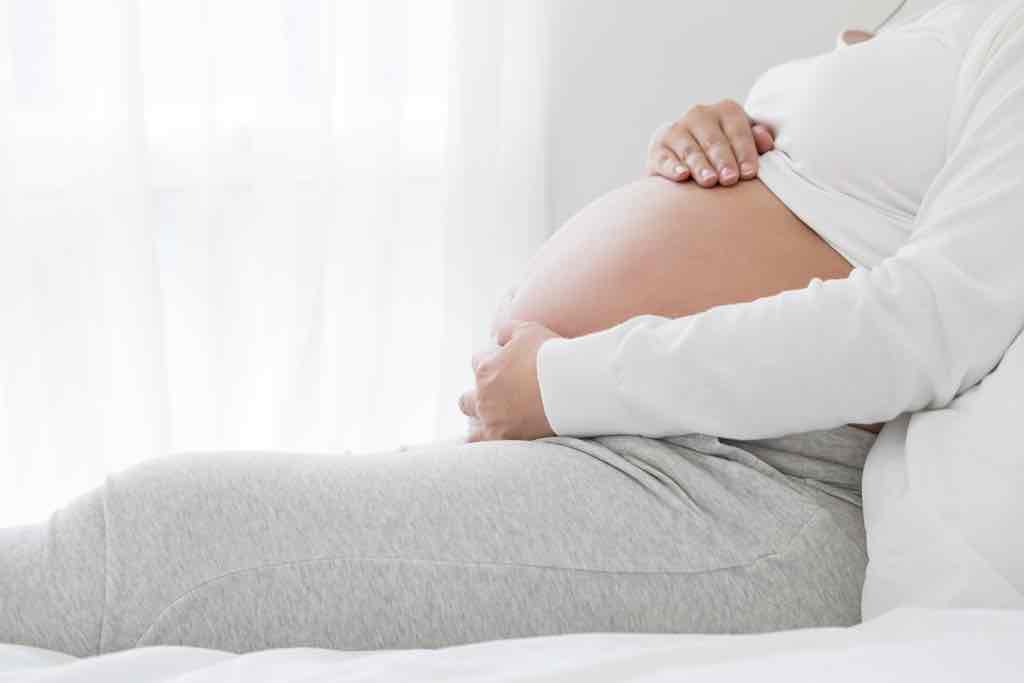 Check out our Medical Director, Dr. Tang's expert sleep advice during pregnancy, as highlighted in a recent article in the Independent.
Check out our Medical Director, Dr. Tang's expert sleep advice during pregnancy, as highlighted in a recent article in the Independent.
How does your circadian rhythm change when pregnant?
During pregnancy, the circadian rhythm, which is the internal biological clock that regulates various physiological processes, undergoes certain changes. Things like hormonal changes, sleep disruptions, changes in activity and energy levels and increased sensitivity to light can affect your circadian rhythm.
What might make you lose sleep?
Many people experience changes in their sleep patterns and quality during pregnancy. Hormonal fluctuations, physical discomfort, frequent urination, and anxiety can contribute to sleep disturbances. Some people may find it more challenging to fall asleep or stay asleep throughout the night, leading to altered sleep-wake cycles and a disrupted circadian rhythm.
Does your body temp change making it harder to sleep?
During pregnancy, basal body temperature (the body's resting temperature) tends to be slightly elevated due to hormonal changes, particularly increased levels of progesterone. This can result in a feeling of warmth or increased body heat. Higher basal body temperature can make it uncomfortable to sleep, especially in combination with external factors like warm weather or a warm sleeping environment.
Some people may also experience episodes of night sweats, particularly during the later stages of pregnancy. Night sweats are episodes of excessive sweating during sleep, which can lead to discomfort, disrupted sleep, and difficulty falling back asleep. Hormonal fluctuations and increased blood flow during pregnancy can contribute to these night sweats.
Hormonal changes during pregnancy can also trigger hot flushes, sudden feelings of intense heat and sweating that typically affect the face, neck, and chest. Hot flushes can occur during the day or at night, affecting sleep. If you have a persistent fever or feel unwell, you should consult your GP.
Will your dreams be more vivid?
There have been numerous reports of people having more vivid dreams during pregnancy. Hormonal changes, increased emotional sensitivity, and changes in sleep patterns can contribute to the intensity and frequency of dreams.
Pregnancy often brings about a range of emotional and psychological changes. Heightened emotions, anxiety, excitement, and anticipation can influence the content and intensity of dreams. Dreams may reflect the concerns, hopes, and fears associated with pregnancy and impending motherhood.
It's important to note that while many pregnant people experience vivid dreams, the content and intensity of dreams can vary greatly from person to person. Some may have positive and pleasant dreams, while others may have more vivid and intense dreams related to anxiety or fear. Everyone’s dream experiences during pregnancy are unique.
If vivid dreams are causing distress or affecting sleep quality, practising good sleep hygiene and relaxation techniques before bed may help promote better sleep. Maintaining a comfortable sleep environment, establishing a regular sleep routine, managing stress levels, and seeking support from healthcare providers can also be beneficial.
Will you be more tired and sleep more heavily?
Pregnancy involves significant hormonal fluctuations, including increased levels of progesterone and oestrogen. These hormonal changes can impact the regulation of the circadian rhythm. Progesterone, in particular, has sedative effects and can lead to increased sleepiness and changes in sleep patterns.
As the pregnancy progresses, physical discomfort and increased fatigue may affect your activity levels. Some people may experience increased daytime sleepiness, while others may find it harder to engage in physical activities due to the physical changes associated with pregnancy.
Does prenatal yoga help?
Yes, prenatal yoga can be beneficial. Prenatal yoga is specifically designed to support the physical and emotional well-being of expectant mothers throughout their pregnancy. It involves gentle stretching, breathing exercises, and relaxation techniques tailored to the needs and safety considerations of pregnancy.
Prenatal yoga incorporates relaxation techniques, deep breathing exercises, and mindfulness practices that can help reduce stress, promote relaxation, and enhance overall well-being. These practices can be valuable for managing anxiety, promoting better sleep, and fostering a sense of calm and balance during pregnancy.
Can we make specific dietary changes to help?
The usual advice still applies when you’re pregnant. Avoid stimulants like caffeine and nicotine (which you should be doing anyway whilst pregnant), stay hydrated and eat a healthy and balanced diet.
Individual dietary needs and tolerances can vary during pregnancy, so it's important to consult with your GP or a registered dietitian for personalised dietary recommendations based on your specific circumstances.
Is there a trimester where it is hardest to get good sleep? One where sleep is so important?
The third trimester can present more pronounced sleep challenges due to the physical changes and preparation for labour. Some common sleep difficulties during this trimester include discomfort and difficulty finding a comfortable position, frequent urination, heartburn/reflux and restless leg syndrome (RLS).
At Pall Mall you can seek a range of our medical services for pregnancy at Pall Mall. Our team offers various options tailored to your needs.
We provide the following pregnancy services:
- Pregnancy Tests: We offer standard pregnancy tests to confirm your pregnancy.
- Advanced and Early Pregnancy Tests: Our advanced tests are designed to detect
pregnancies at an early stage, providing you with accurate results.
Our highly accurate Beta HCG test can detect pregnancies earlier than other tests. This confidential test is available at our clinics in Manchester, Liverpool, and Newton-le-Willows.
In addition to our testing services, we have specialised professionals to address specific pregnancy concerns:
Our Consultant Gynaecologist & Obstetrician Mr. Matai specialises in fertility and pregnancy up to 22 weeks. With us, you can receive a pregnancy ultrasound scan without any waiting list or the need for an NHS referral.
We also have an expert consultant in hormone-related issues during pregnancy who can assist you in managing any hormonal problems that may arise.
To book an appointment for any of our medical services, please contact us at 03300 27 26 45. Our friendly team will be happy to assist you.




